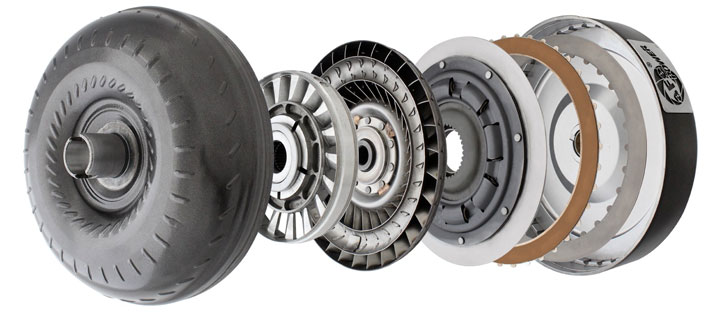Signs that Show Torque Converters Need Replacement

It is not easy to tell whether the problems of a car come from a faulty torque converter or the transmission. Many people tend to confuse signs of worn-out torque converters with those associated with the transmission. It may require the services of an expert to ascertain the exact problem.
Torque converters transfer the power of a car’s engine to the transmission in automatic cars. Repair shops and most torque converter parts suppliers have experts that can help fix torque converter problems. However, it is important for car owners to know the main symptoms associated with malfunctioning torque converters. Here are some of them.
Slipping
A faulty torque converter frequently slips out of gear or delays shifts. This happens because a torque converter is responsible for changing the power of a car’s engine into hydraulic pressure in order to shift gears. Inadequate or excessive levels of automatic transmission fluid also cause the gears to malfunction.
Overheating
Overheating in cars does not only happen as a result of a faulty transmission. A worn-out torque converter can also be responsible for the problem. Overheating in a car is indicated in the temperature gauge. It is prompted by a drop in automatic transmission fluid levels. Slipping can also lead to overheating. If the problem is not handled early enough, it may damage parts of the transmission.
Faulty Transmission Fluid
If the automatic transmission fluid (ATF) is filled with black sludge or debris, it means it is contaminated. It could be as a result of a damaged transmission. A dirty fluid affects the parts of a torque converter like turbines and bearings. It is advisable to check and regularly replace the automatic transmission fluid of a torque converter. This saves the car from other complications that might arise as a result of a damaged transmission.
Increased Stall Speed
A faulty torque converter won’t be able to convert the power of a car’s engine into hydraulic pressure efficiently. This increases the stall speed. As a result, the car’s transmission takes a lot of time to coordinate with the engine.
Noise
Noise in a car could be a red flag that the torque converter needs to be replaced. The noise could be coming from broken bearings or a damaged turbine fin.
Shuddering
It is not normal for a car to shudder on smooth roads. When a car moves like it is on a bumpy road, even on the softest surfaces, the lockup clutch of the torque converter could be damaged. When this happens, seek immediate help from the nearby repair shop.
Conclusion
Most problems in torque converters may be a result of damaged parts. It is good to know the symptoms associated with damaged torque converters. Once the signs are noticed, the car should be taken for repair to reduce the risks of damaging other parts. Faulty torque converter parts can be replaced by visiting the nearest torque converter parts suppliers. The majority of suppliers provide the parts at affordable prices.

